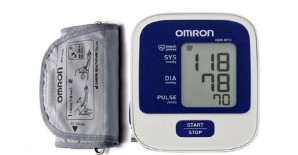
Health

Keep a watch on your Vitamin B12 levels, writes wellness consultant Naini Setalvad
These days there is a lot of discussion about Vitamin B12, also known as Cobalamine, because deficiency in this vitamin is becoming widespread. Incidentally, B12 is the only vitamin in the body stored in large amounts in the liver. People tend to go low on it as the body absorbs B12 through a very complicated process, which involves intrinsic factor, a protein found in acidic gastric juices. Low levels of stomach acid, an inadequate amount of intrinsic factor (both of which occur with age) and inflammation of the small intestine can lead to B12 deficiency.
Indispensable vitamin
Unfortunately, owing to a variety of factors, B12 deficiency is no longer restricted to silvers, but is common among youngsters too. In such cases, the body is not able to produce gastric juices that in turn spur the intrinsic factor needed to procure Vitamin B12 from food. Like other vitamins, B12 is indispensable for the body, as it is needed for chemical reactions such as cell replication, particularly of red blood cells. B12 also maintains the protective sheath around nerves, helps convert food to energy, and plays a critical role in the production of DNA and RNA, the genetic material in cells.
Causes for deficiency
Vitamin B12 is absorbed in the small intestine, when the food is combined with intrinsic factor. It exits the body in the form of bile salts, of which the majority is reabsorbed in the ileum of the small intestine. As long as the body is able to adequately reabsorb the vitamin, a deficiency may not readily develop. However, one may become deficient in B12 owing to the following reasons:
- A diet lacking in B12 because one may not have the foods containing it—for example, if you are vegan or lactose intolerant
- Ageing, as it reduces the secretion of gastric juices that contain intrinsic factor and enable the breaking down of food
- Gastrectomy or partial removal of the stomach by surgery. Gastric juices also contain hydrochloric acid, which assists in converting inactive pepsinogen to active pepsin, which is the main protein used to digest food in the stomach
- Ileal resection or Ileitis, a chronic inflammatory bowel disease that affects the lining of the digestive tract.
As Vitamin B12 is stored in the liver you may never know when your reserves deplete, and may go years before showing any signs and symptoms of B12 deficiency.
Be alert
The simplest way to keep your Vitamin B12 level normal is to regularly monitor it through blood tests. Keeping B12 parameters high is not an issue of concern, as it is a water-soluble vitamin. On the other hand, deficiency can make it difficult to maintain balance while walking. Executing even simple chores can lead to weakness and excessive fatigue. Irregular menstrual cycles, painful menopause leads, disorientation, depression, mood disturbances, irritability and memory loss are other symptoms of B12 deficiency. If the deficiency continues for a long time and is not taken care of, it can lead to dementia and other neurological disorders.
Vitamin B12 is found in its natural form in paneer, Swiss cheese, yoghurt and shiitake mushroom, besides eggs. As the amount of B12 present in food is very low, it is quite common to develop a deficiency. Not surprisingly, B12 supplement is one of the most commonly sold off-the-counter drug.
Setalvad is an obesity and lifestyle disease consultant who offers diet counselling at Health for You, a wellness clinic in Mumbai, as well as online. Visit www.nainisetalvad.com for more details or write to contact.us@harmonyindia.org if you have any queries for her
Photo: iStock February 2019
you may also like to read
-
Hot tea!
If you enjoy sipping on that steaming hot cup of tea, think twice. New research establishes a link between drinking….
-
Weight and watch
If you have stayed away from lifting weights at the gym, thinking it might not be a good idea for….
-
Toothy truth
Research has established a clear association between cognitive function and tooth loss when cognitive function score was categorised into quintiles…..
-
PRODUCT OF THE MONTH
Automatic Blood Pressure Monitor Measure your blood pressure and pulse rate with no fuss Hypertension, or high blood pressure, could….







